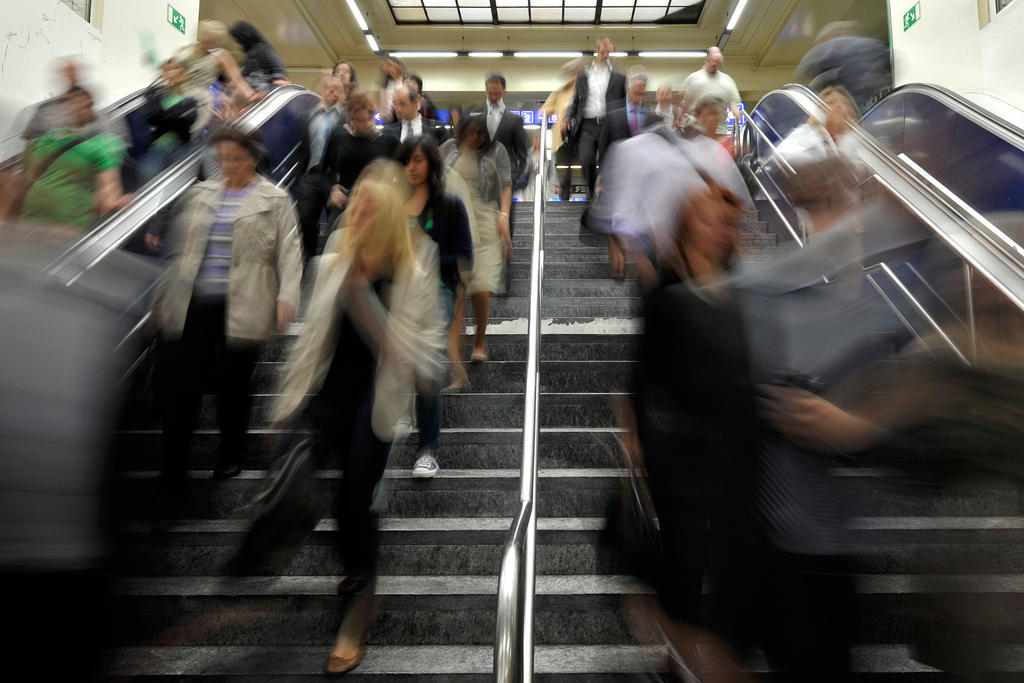
Swiss face longer commutes

The average commute time to work in Switzerland was 30 minutes in 2016, or 14.8 kilometres (9.2 miles), according to the Federal Statistical Office. This is 7% more than in 2010.
Every day, 3.9 million people, out of a labour force of 4.8 million, commuted to work in 2016 – up from 2.9 million in 1990. Some 71% worked in a different municipality from where they lived and 20% travelled to a different canton, +12% compared to 1990, the statistics office reported on WednesdayExternal link.
+ How do people in Switzerland get to work?
The statistics office said the majority drove to work (52%), whilst a third used public transport (17% took a train). Almost 15% of people walked or cycled to work.
Canton Zurich had the highest net inflow of commuters (+88,000 people). In canton Basel City, 51% of commuters travelled in every day from other regions. The figures were also high for cantons Zug (+34% of commuters), Zurich (+13%) and Geneva (+11%).
The statistics office also found that 800,000 young people (pupils, apprentices and students) commuted daily to their places of study or training in 2016. On average, they covered 22 km, mostly by train or bus.

In compliance with the JTI standards
More: SWI swissinfo.ch certified by the Journalism Trust Initiative
















![The four-metre-long painting "Sonntag der Bergbauern" [Sunday of the Mountain Farmers, 1923-24/26] had to be removed by a crane from the German Chancellery in Berlin for the exhibition in Bern.](https://www.swissinfo.ch/content/wp-content/uploads/sites/13/2025/12/01_Pressebild_KirchnerxKirchner.jpg?ver=14ffbad8)













You can find an overview of ongoing debates with our journalists here . Please join us!
If you want to start a conversation about a topic raised in this article or want to report factual errors, email us at english@swissinfo.ch.